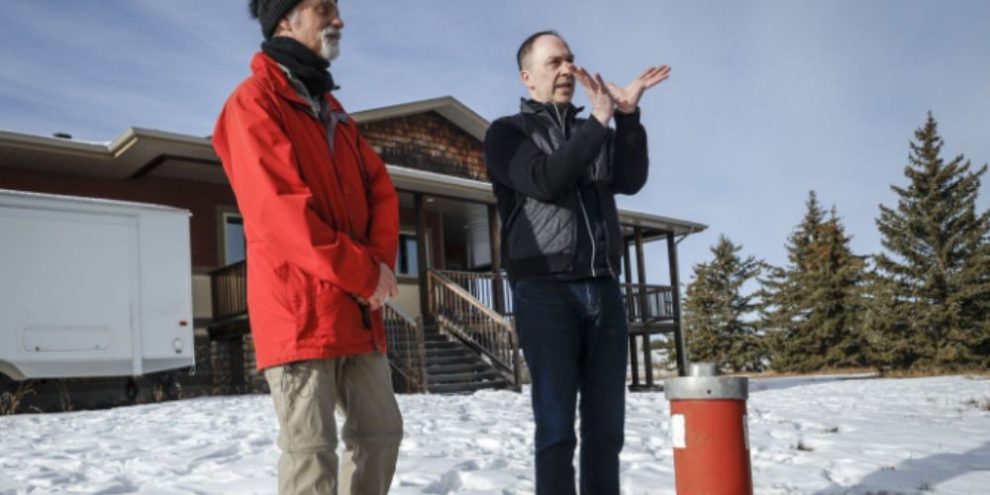
A countrywide study says radioactive radon exposure is on the rise and continues to be a critical public health concern.
The study, released Wednesday, is the first update on radon exposure in Canada since 2012.
"We're more than a dozen years out from understanding how the Canadian residential radon problem has changed, and indeed it has changed," said the scientific lead on the report, Aaron Goodarzi, a professor of biochemistry and molecular biology at the University of Calgary's Cumming School of Medicine.
Radon is a colourless, odourless, radioactive gas that forms naturally when uranium, thorium or radium — radioactive metals — break down in rocks, soil and groundwater. Exposure comes from breathing radon in air that comes through cracks and gaps in buildings and homes.
It's the second-leading cause of lung cancer in Canadians, especially for those who don't smoke.
Goodarzi said that in 2012, about seven per cent of homes in Canada were found to have above Health Canada's safe level of radon — 200 becquerels per cubic metre.
In 2024, 75,000 readings were taken from urban and rural residential buildings across Canada. Data from the 2021 census was also used.
"This is now 17.8 per cent, so that's up more than double, 2 1/2 times greater, in terms of a property exceeding Canada's guideline," he said.
"From my perspective as a researcher studying this over the past 10 years, it's no surprise. As a lung cancer prevention advocate, of course it is alarming."
Goodarzi said there are an estimated 10.3 million Canadians living in houses with high radon, increasing their risk of developing lung cancer.
The study says one in five Canadian residential buildings are at or above Health Canada's safe level.
In Atlantic Canada, the B.C. Interior and Yukon, it's one in three.
"There's no area in Canada that is risk-free," Goodarzi said. "Canada is amongst the highest that has been mapped globally in the world."
Goodarzi said the rise in radon could be partially because readings were taken on a ground floor or in a basement compared to the rest of a home. He said new home builds are also more energy efficient and trap radon inside.
He said the new report also contains five times more readings than the 14,000 taken in 2012.
Goodarzi said people need to install radon detectors in their homes and take measures to remove high levels of the gas. He said he also hopes changes will be made in the construction of new homes to account for radon.
A coalition of researchers behind the report also includes scientists from Health Canada and CAREX Canada.
Alison Wallace, a thoracic surgeon at the QEII Health Sciences Centre in Halifax, is a co-author.
"I'm very concerned. I think the data accuracy of the new report is more robust," she said.
"It's more real numbers and people should take it seriously."
"It's more real numbers and people should take it seriously."
The Lung Health Foundation praised the report for it's "clear and urgent message."
"We now know that nearly 18 per cent of Canadian homes contain dangerous radon levels that require swift action. It’s worse than we previously thought," said Jessica Buckley, president and CEO of the foundation.
"We think it will inspire a record-breaking number of Canadians to test their homes and workplaces."
This report by The Canadian Press was first published Oct. 23, 2024.





